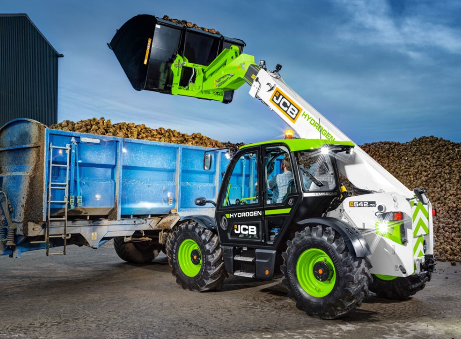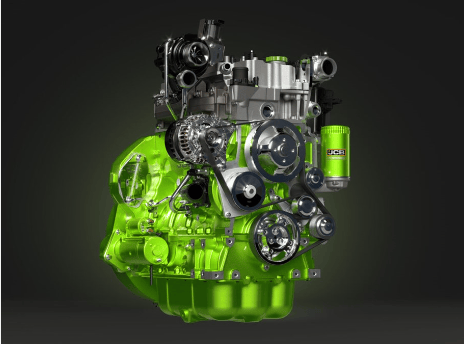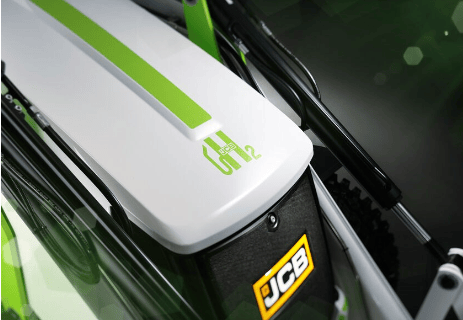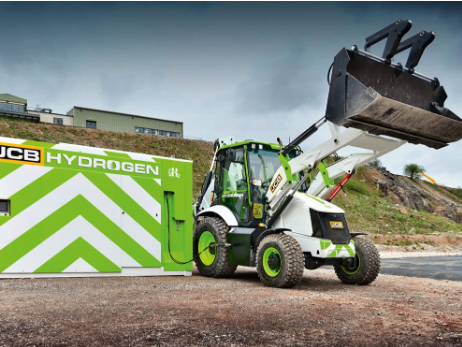JCB : BUILDING A HYDROGEN FUTURE
Revolutionizing the Industry with the Hydrogen Motor


Benefits and Implications
The development of the first hydrogen motor in our industry has far-reaching implications. Firstly, it offers a viable alternative to traditional diesel engines, allowing industries to reduce their carbon footprint and contribute to global efforts in combating climate change. The zero CO2 emissions at the point of use make our hydrogen motor an environmentally friendly choice. Furthermore, the adaptability of our hydrogen motor technology opens up possibilities for various applications beyond backhoe loaders. Industries such as construction, agriculture, and transportation can benefit from this innovative solution, reducing their reliance on fossil fuels and transitioning towards a more sustainable energy source. In conclusion, the engineers at JCB Power Systems have achieved a remarkable feat by developing the first hydrogen motor in our industry. This technology, which utilizes established engine technology and readily available components, offers a simpler and more sustainable alternative to hydrogen fuel-cell technology. With zero CO2 emissions at the point of use, our hydrogen motor paves the way for a greener and cleaner future.


THERE IS AN ALTERNATIVE – IT’S HYDROGEN!
Engineers at JCB Power Systems, our engine factory in Derbyshire, UK, have developed the first hydrogen motor in our industry. Using and adapting established engine technology with readily available components, hydrogen is combusted and power is delivered in exactly the same way as a diesel engine. And now, our prototype backhoe loader, fitted with this new hydrogen motor, can do everything its diesel-powered equivalent can do.
What’s more, the technology is far less complicated than hydrogen fuel-cell technology. Nothing but steam is emitted from the tailpipe. Zero CO2 at point of use.
TODAY’S CHALLENGE FOR TOMORROW
How do you replace fossil fuels with a zero-carbon alternative that still allows heavy machines to do heavy work for up to 12 hours a day, every day?
Batteries are not practical for equipment with high power demands, and for machines that work in remote locations, such as backhoe loaders and large excavators. Batteries would weigh too much, cost too much and there would not be enough time to charge them, even if on-site charging infrastructure was in place.


HOW DOES REFUELLING WORK?
To support hydrogen equipment, JCB has developed a hydrogen refuelling unit which stores hydrogen in cylinders.
The unit can be delivered to site and allows the user to deliver hydrogen via a nozzle into their machine when needed. It only takes minutes to fill up, which is comparable with diesel fuels. JCB refuelling units can refuel a JCB machine up to 16 times before needing to be recharged.
To support hydrogen equipment, JCB has developed a mobile hydrogen refuelling unit which allows for easy transportation of hydrogen on site.
JCB’s customers often take fuel to the machines, rather than machines to the fuel – this means a mobile refuelling solution is needed. JCB has developed a mobile hydrogen bowser for our own sites, which can be driven to the machine, allowing refuelling in a similar way to today. It also only takes minutes to fill up, which is comparable with diesel fuels. JCB refuelling units can refuel the JCB hydrogen backhoe loader over a dozen times before needing to be recharged.



